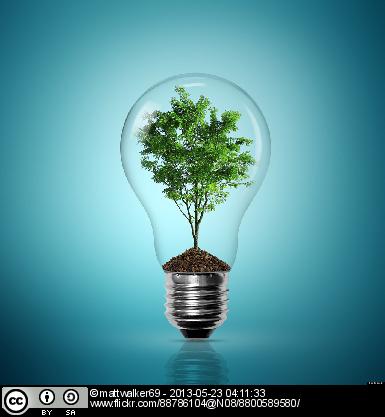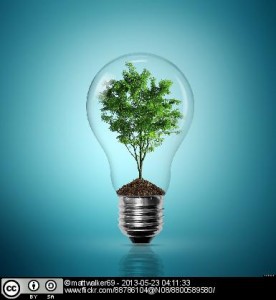
November 22, 2013, by Helen Whitehead
Introducing Sustainability
This post gives you a flavour of the approach we take towards Sustainability in our course: ‘Sustainability, Society and You’.
If you ask six of your friends or family to tell you what ‘Sustainability’ means, you would probably get six different answers. Some of us might say it is about saving the planet or protecting the environment. Others might focus in on basic human behaviours and say that sustainability is about recycling and reducing waste. None of these answers would be ‘wrong’ but none of them would capture the complexity and richness that is hidden within the one word. Those of us who work daily with the ‘S’ word have stopped trying to agree a definition – instead we search for mutual understanding so that we can grasp at our shared values and move forward.
 Yes, achieving a sustainable environment is something that most of us hope for or strive for, but environment here means the world that we live in. It means achieving sustainability for human societies (enough energy and food for all) but doing so in a way that recognises that we are part of the ecosystem ourselves. To care for each other, we need to balance the needs of our neighbours on this planet – our lives are linked together.
Yes, achieving a sustainable environment is something that most of us hope for or strive for, but environment here means the world that we live in. It means achieving sustainability for human societies (enough energy and food for all) but doing so in a way that recognises that we are part of the ecosystem ourselves. To care for each other, we need to balance the needs of our neighbours on this planet – our lives are linked together.
It is because of the complex relationships determining life on this planet that we cannot explore the challenge of achieving sustainability from any one angle. We can study the science of climate change, but we need also to understand how climate change may affect the lives of peoples and species differently – some of us may suffer more than others and hence questions arise as to our shared responsibility.
Sustainability is part of an intricate web of connections. If we have unhealthy lifestyles, for example if we eat too much and exercise too little, then we may have a surprisingly large carbon footprint (modes of travel, sources of food). If we eat seasonal, fresh food (and less meat), and take more exercise (walking, cycling, public transport), then our carbon footprint may be less. But not all of us have choices – some of us are locked into ‘unsustainable’ lifestyles for reasons that may appear beyond our control.
So, sustainability is not simple. And it is not a ‘topic’ or ‘subject’. It is a theme, a thread, a process. For example, one of the most important things that we can do in support of sustainability is to be critical thinkers. If we can access information, analyse it and come to informed judgements, then we can make better decisions rather than bad decisions. And the journey towards sustainability is full of scope for innovation, ingenuity and entrepreneurship – it is a search for creative solutions rather than ‘right answers’.
 If you want to explore the bigger picture but also to reflect upon the options you have in your own life, then ‘Sustainability, Society and You’ might be the space you are looking for.
If you want to explore the bigger picture but also to reflect upon the options you have in your own life, then ‘Sustainability, Society and You’ might be the space you are looking for.
Written by Sarah Speight
No comments yet, fill out a comment to be the first

Leave a Reply